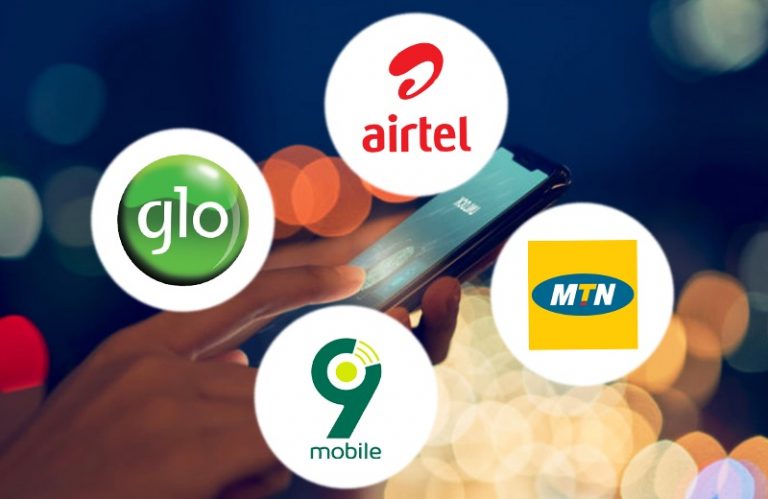
In a bid to safeguard Nigeria’s telecommunications infrastructure from an onslaught of fiber cuts, equipment theft, and vandalism, the country’s telecom operators have united to form an Industry Working Group dedicated to its protection.
The initiative unveiled following a high-level stakeholder meeting hosted by IHS Nigeria at its Lagos headquarters, underscores the industry’s escalating operational challenges— which contributed to the recent contentious 50% tariff hike aimed at offsetting spiraling costs.
The Working Group, established under the umbrella of the Association of Licensed Telecoms Operators of Nigeria (ALTON), emerged from a gathering of industry leaders, regulators, and law enforcement agencies. According to a statement from the operators, the coalition was forged in recognition of telecommunications as the linchpin of national security, economic growth, and social cohesion—a vital asset now under relentless threat.
Register for Tekedia Mini-MBA edition 19 (Feb 9 – May 2, 2026).
Register for Tekedia AI in Business Masterclass.
Join Tekedia Capital Syndicate and co-invest in great global startups.
Register for Tekedia AI Lab.
The Industry Working Group is tasked with confronting a raft of industry scourges: vandalism and theft of telecom assets, arbitrary shutdowns of base stations, fiber cuts triggered by road construction, and unauthorized access to sites by individuals. To counter these, the group will deploy advanced technology for real-time monitoring and protection, bolster security around telecom installations, and forge partnerships with security and regulatory agencies to clamp down on offenders.
Beyond enforcement, the initiative prioritizes public awareness, with plans for campaigns to sensitize host communities and the broader populace on the need to safeguard these critical assets.
Dapo Otunla, Senior Vice President & Chief Corporate Services Officer of IHS Nigeria, praised the effort as a long-overdue response to a festering crisis.
“The protection of Critical National Information Infrastructure (CNII) has been a critical concern for all industry stakeholders,” Otunla said. “We are experiencing daily losses of assets, which significantly impact on the quality of service delivered to subscribers. Addressing these issues is paramount to sustaining Nigeria’s digital ecosystem and meeting regulatory expectations.”
His remarks lay bare the toll of unchecked vandalism: degraded service quality, mounting repair bills, and a digital ecosystem teetering on the brink.
The Working Group’s formation comes as Nigerian telecom operators grapple with a perfect storm of operational hurdles, with infrastructure damage driving up costs at an alarming rate. Industry insiders point to fiber cuts—sometimes occurring multiple times daily—as a prime culprit, alongside the theft of equipment like generators and copper cables.
These incidents have forced companies to pour billions of naira into repairs and replacements, a burden compounded by soaring fuel prices, currency depreciation, and regulatory fees. This financial strain was a key driver behind the 50% tariff hike approved by the Nigerian Communications Commission (NCC) in early 2025, a move operators defended as essential to their survival but which sparked widespread backlash from consumers facing economic hardship.
The tariff hike, while shoring up operator revenues, has intensified public scrutiny of the industry’s inability to curb infrastructure threats, making the Working Group’s mission all the more urgent.
A Push to Enforce CNII Protections
The initiative also reflects a proactive push by telecom firms to breathe life into the government’s Critical National Information Infrastructure (CNII) policy, which has languished despite high-profile endorsements. In August 2024, President Bola Tinubu signed the ‘Designation and Protection of Critical National Information Infrastructure Order, 2024,’ classifying telecom assets as CNII and criminalizing their willful destruction.
Dr. Bosun Tijani, Minister of Communications, Innovation, and Digital Economy, lauded the gazette as a “significant step” to bolster ICT investments. Yet, it mirrors an earlier, toothless effort: in June 2020, then-Minister Dr. Isa Pantami announced a similar designation by former President Muhammadu Buhari, complete with directives for physical safeguards. That pronouncement failed to halt the daily vandalism plaguing the sector, exposing a persistent enforcement gap the Working Group now seeks to close.
The stakes extend far beyond balance sheets. Nigeria’s $75.6 billion telecom sector is the lifeblood of its digital economy, powering mobile banking, e-commerce, and remote education—sectors pivotal to the nation’s growth ambitions. Yet, infrastructure damage threatens to derail these gains, disrupting connectivity and saddling operators with costs that ripple through the economy.
The recent tariff hike, while a lifeline for telecoms, risks pricing out low-income users, widening the digital divide at a time when broadband penetration remains a national priority under the 2020-2025 National Broadband Plan.
For the Working Group, success could stabilize an industry on edge, curbing losses, improving service reliability, and easing pressure on consumer wallets. Failure, however, could entrench a cycle of rising costs and declining trust, with vandals and thieves holding Nigeria’s digital future hostage.



